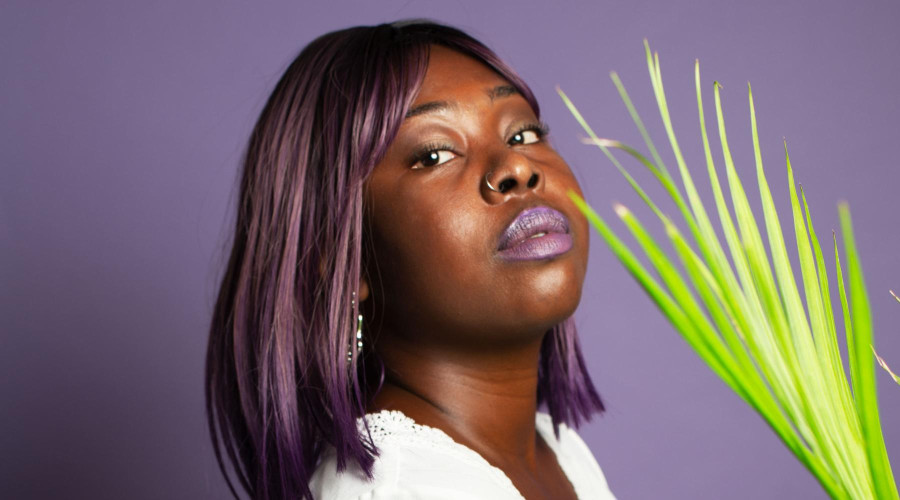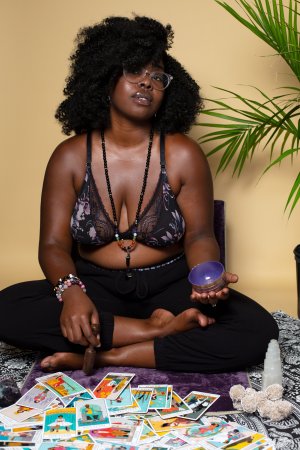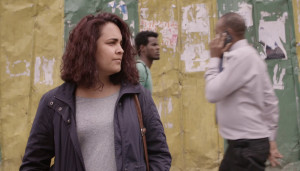When I was 19, I walked by a poster on Trent University’s campus that asked a question I had been running from for years: “Are you being sexually abused?”
That question hit me harder than I could have ever imagined. In that moment, the truth I had buried deep inside came rushing back. My father had sexually abused me from the age of 11 to 19, and I had carried that silence with me for nearly a decade, thinking it was the only way to survive. But standing in front of that poster, I realized the silence was choking me. I couldn’t keep hiding from the truth.
Reaching out to the university therapist was terrifying. Speaking the words out loud—admitting that my own father had been my abuser—felt like I was tearing open a wound that had never and would never have the chance to heal. Once I said it, a flood of emotions hit me—anger, sadness, fear. But as overwhelming as it was, saying it gave me my first real taste of freedom. I thought I could finally breathe. But the next part of my story showed me just how complicated healing could be.
As soon as I disclosed what happened, the therapist had to report it because there were still other children in the house. That’s when everything spiralled. Children’s Aid Society stepped in, and spoke to my father, my stepmother, my siblings, and even some of his coworkers. The conclusion? “There’s no abuse in this household.” Just like that, my truth—everything I had been through—was erased.
I was devasted.
I had been betrayed again. My family begged me to keep quiet, to not “ruin” everything, and I did. I swept it all under the rug, just like they wanted. I promised I wouldn’t tell anyone else. I wouldn’t air the dirty laundry.
This is what we call cultural betrayal. In Black families and communities, we’re taught to protect the family at all costs. What happens at home stays at home. You don’t bring shame to the family, and you certainly don’t upset the delicate balance that holds everything together. We’ve been conditioned to endure pain quietly to protect the image of the family—even if it means silencing ourselves in the process.
But this silence isn’t just about protecting the family’s image—it runs deeper. Many Black families, including mine, haven’t had open conversations about mental health. It’s as though we don’t know how to navigate these emotional terrains. Our history with systems that have often done more harm than good has taught us to protect ourselves from them rather than seek help. Therapy and mental health services, which are supposed to provide support, are often viewed with suspicion because they have historically failed us, or worse, caused us further harm.
There’s also the fear of giving society more “ammunition.” We already battle stereotypes that portray Black families as broken, dysfunctional, or violent. The concern with image is about survival. Exposing our struggles risks reinforcing negative perceptions. We don’t want to appear weak or become another statistic. So, we stay quiet—protecting our family’s image, but also shielding ourselves from a world that constantly judges us.
Sadly, my experience isn’t unique. Gabrielle Union’s story resonated deeply when she opened up about being sexually assaulted at 19. She, too, felt that weight of silence—the cultural pressure to protect her family’s image, not to be seen as a problem, even though she was the victim. It’s a burden Black women often carry: protecting everyone but ourselves.
Megan Thee Stallion’s story amplified this conversation when she spoke out about being shot. The backlash was swift and unforgiving. People questioned her credibility, doubted her experience, and perpetuated the same cultural betrayal I experienced. As Black women, when we speak our truth, we are often met with resistance, disbelief, or outright dismissal. We’re told to stay quiet, to protect the community, to avoid disrupting the fragile peace. But what about our peace? What about the trauma we carry when we’re forced into silence?
This is the intersection of race and trauma. Black women like myself, face unique challenges when it comes to speaking out. The weight of cultural expectations, combined with the systemic racism we face in society, often means our stories are pushed aside or diminished. We are left to navigate our healing in isolation, carrying the burden of protecting not just ourselves, but everyone around us.
When I was 21, I tried to tell my mom the truth, hoping for support. Instead, she called me disgusting. That word still rings in my ears. I’ve spent so much time wondering why she wasn’t angry at my abuser, why she didn’t comfort me, why she didn’t try to acknowledge my pain. But in our family, that’s how it was. We don’t talk about it. We don’t address it. We stay silent. And that silence becomes its own kind of betrayal.
{https://www.instagram.com/p/C_iSumtOnMJ/?img_index=1}
Cultural betrayal isn’t just about staying silent—it’s the added trauma of being told that your pain doesn’t matter. That the abuse you experienced is somehow less important than keeping the family together. And this isn’t just my story—it’s the reality for many Black women. We are expected to carry the weight of our trauma in silence to avoid causing waves, even when that silence suffocates us.
After experiencing so much betrayal, I knew I needed to find spaces where I could nurture the safety I had built within myself. Therapy helped me realize that I couldn’t keep protecting those who harmed me. I couldn’t keep betraying myself to maintain peace. That’s when I found solace in the spiritual community. There, I was encouraged to embrace every part of myself—to be unapologetically Black, a woman, a survivor living with C-PTSD, and queer. The spiritual community allowed me to be my full self, and it was there that I continued to heal.
From this first-hand experience, I realized how powerful these spiritual tools could be in guiding others on their healing journeys. That’s why I founded Synchronized Souls Inc., a heart-centered business focused on trauma-informed care and spiritual healing. My work is grounded in safety, trust, and empowerment. I offer tarot readings, reiki healing, trauma-informed yoga sessions, and past-life readings. I also provide digital products, such as eBooks, workbooks, and self-paced programs, giving people tools to access healing on their own terms.
Recently, I received a grant to expand my peer support program Courageous Connections, which supports BIPOC women survivors of childhood sexual abuse. The program focuses on using holistic practices like breathwork, meditation, and community support to help participants move through their trauma. It’s about creating spaces where survivors can be seen, heard, and supported in a way that prioritizes their well-being without pushing them to heal faster than they’re ready.
Gabrielle Union and Megan Thee Stallion stood in their truth, even when the world tried to tear them down for it. Their courage mirrors my own journey. Our stories are part of a larger conversation—one where Black women are breaking the silence that’s been forced on us for generations.
Reclaiming our voices can begin to heal those wounds.
Healing isn’t linear. It’s messy, painful, and filled with setbacks. But what I’ve learned from my journey—and from public figures like Gabrielle and Megan—is that breaking the silence is the first step. The path to healing is long, but each step forward is a step toward reclaiming our power, a refusal to stay silent any longer.

 By
By 


